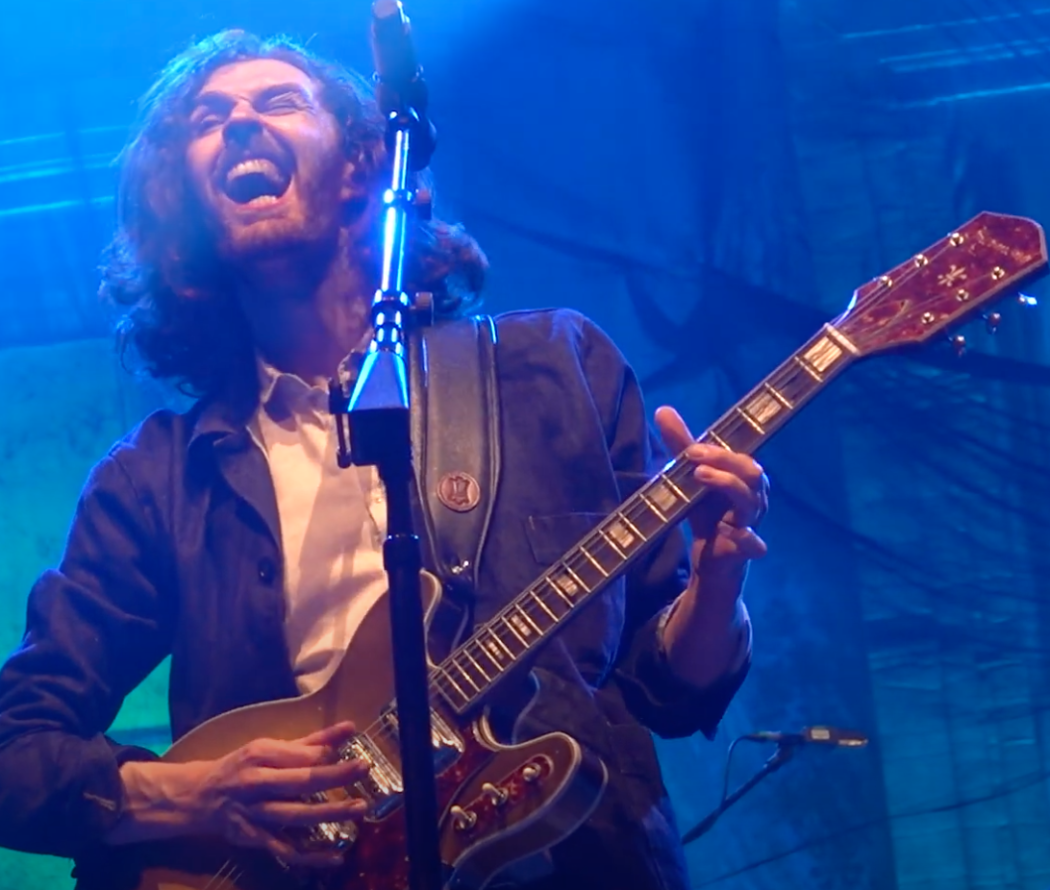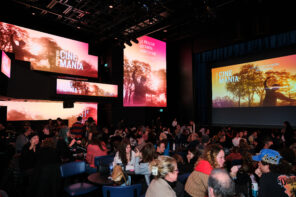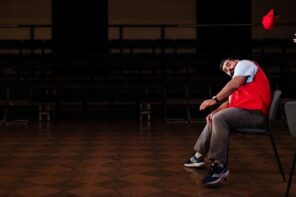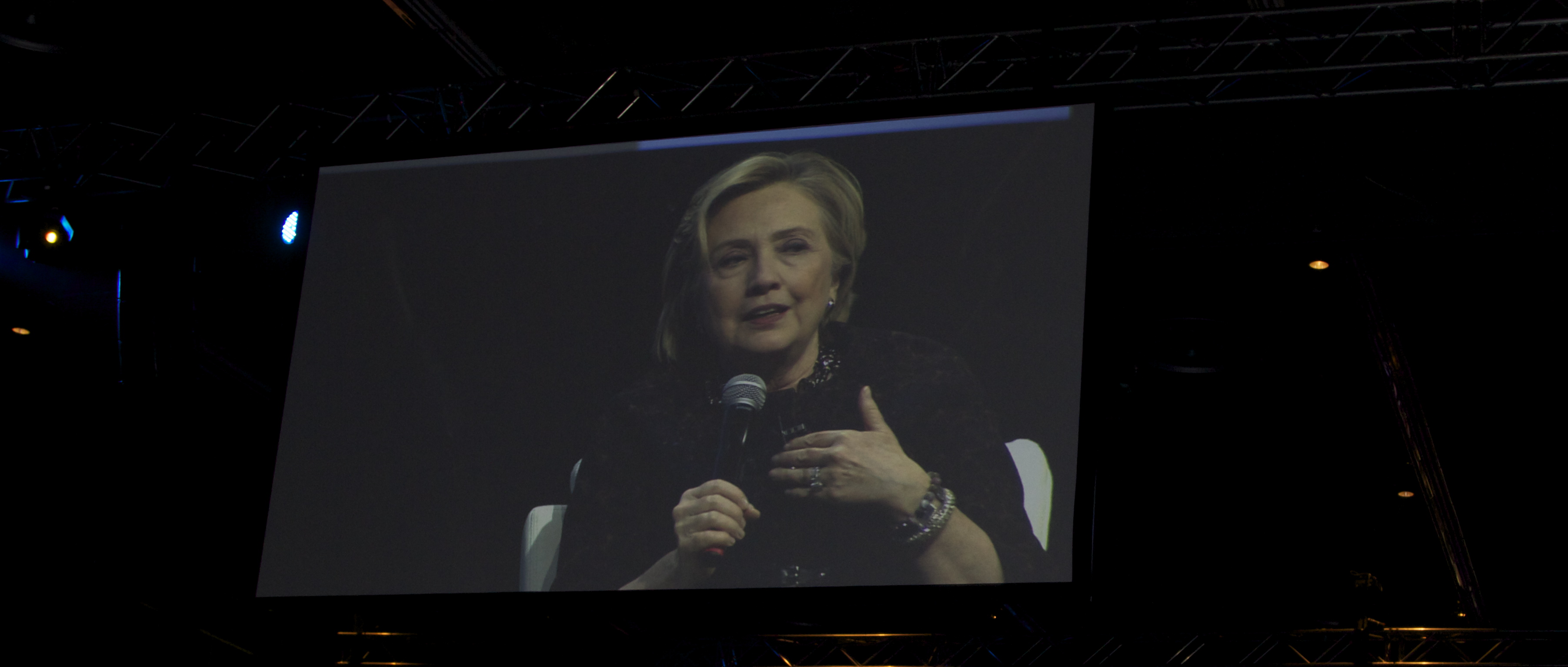Hozier’s third studio album, Unreal/Unearth, is a magnificent manifestation of Hozier’s growth and the signature brand that the Irish singer-songwriter has spent the last decade developing. With his debut song “Take Me to Church” becoming a smash hit, Hozier’s first release was more than just another pop ballad about love and loss. Pulling from Fulke Greville’s poem Chorus Sacerdotum and biblical themes of original sin, “Take Me to Church” established Hozier’s practice of utilizing historical source material to convey a political message. Within “Take Me to Church,” Hozier takes repeated digs at organized religion, especially the Catholic Church for villainizing sexuality, with the piece becoming an anthem for the LGBTQ+ community and those who have experienced religious trauma. At Hozier’s September 20th show in Laval, he put a trans flag over his mic stand during the song on a day when several anti-trans protests took place outside the Roddick Gates. Hozier understands that his target audience doesn’t need watered-down lyrics and themes to appreciate a piece of music and he leans into intellectualism throughout his discography to relate historic events to current political movements and daily life.
Released on August 18th, Unreal/Unearth is a concept album based on the classic Dante Alighieri’s Inferno. Inferno describes Dante’s descent through the 9 circles of hell; limbo, lust, gluttony, greed, wrath, heresy, violence, fraud, and finally treachery, encountering political rivals and prominent members of the church along his journey. Similarly, Hozier has formatted his album to reflect this journey musically. The tracks “Francesca” and “Eat Your Young” are two of the standouts on the album, representing lust and greed respectively.
Both songs describe desire or lust as something that must exist outside of the proposed moral bounds of the Church, as the “perfection” idealized in the concepts of heaven and innocence does not allow for the raw emotions that come with love and lust.
The second circle is reserved for the lustful – Dante describes a fate where the sinners are destined to be blown around violently by winds for eternity to emulate the violent throws of passion they allowed while on Earth. In this circle, Dante meets two forbidden lovers who stick together, despite the winds, named Francesca and Paolo. Francesca was preordained to marry Paolo’s brother who ultimately killed the two upon discovering their affair. In “Francesca,” Hozier writes from Francesca’s perspective, narrating an unwavering love that the “fear of any hurricane” could not shake. Hozier describes her willingness and even eagerness to endure eternal suffering if it means she can suffer alongside Paolo. The line “heaven is not fit to house a love like yours and mine” from the song’s outro mirrors messaging in the line “there is no sweeter innocence than our gentle sin” from “Take Me To Church”. Both songs describe desire or lust as something that must exist outside of the proposed moral bounds of the Church, as the “perfection” idealized in the concepts of heaven and innocence does not allow for the raw emotions that come with love and lust. Hozier has spent the last decade disconnecting morality from religion through a palatable pop music sound accessible to the masses, and in doing so has invited persecuted lovers across the world to connect with his music.
In the modern context, this song takes Dante’s image of gluttony and uses it to shame the actions of past generations, specifically hoarding resources, which make it impossible for young people to accumulate their equal portions.
Later in the album, “Eat Your Young” embodies the third circle, reserved for the gluttonous. The gluttonous circle of Dante’s Inferno is a much more literal representation concerned with food and drink. Hozier opts again to tie religious sin to modern political issues, using gluttony to describe the over-extraction of resources and the hoarding of wealth perpetrated by past generations. In this piece, Hozier formats the chorus almost as an instructional manual that directs young people to get their fair share of capital. The remainder of the chorus recounts different betrayals of fellow man by describing the act of pulling up a ladder to escape a flood and then throwing down an insufficient amount of rope, leaving a person dangling above the water. In the modern context, this song takes Dante’s image of gluttony and uses it to shame the actions of past generations, specifically hoarding resources, which make it impossible for young people to accumulate their equal portions.
Building off the foundation laid by “Take Me to Church”, Unreal/Unearth is Hozier’s magnum opus, tying together his decade-long grapple with religion, morality, and self by using his signature intellectual source content. Overall, the album allows for engagement on both a surface level for those who wish to appreciate great pop music and a deeper level for those who wish to investigate every reference and theme, which exists in an endless supply. Through his exploration of source material, Hozier reignites the flame of intellectualism that is so often tossed aside in modern pop.








